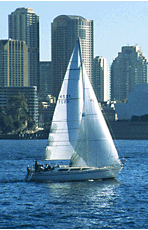This doesn't have much to do with this particular post, but I just wanted to let you know that your blog is a fantastic cultural resource. I am a 15-year-old American who is interested in Singapore and this is one of the coolest sites out there to learn about the country. So kudos to you! :P
Posted by Kyle at April 22, 2008 04:22 AM
ya,i agree with kyle ,this is a cool blog,lol......
Posted by cc at April 22, 2008 06:59 AM
Discount viagra online
viagra
https://www.blogger.com/comment.g?blogID=1858804376236895818&postID=7276287082131689152
[url=https://www.blogger.com/comment.g?blogID=1858804376236895818&postID=7276287082131689152]viagra[/url]
Posted by Viagra at April 23, 2008 06:05 AM
Cheap cialis online
cialis
https://www.blogger.com/comment.g?blogID=7279083394536415042&postID=6573843005418079401
[url=https://www.blogger.com/comment.g?blogID=7279083394536415042&postID=6573843005418079401]cialis[/url]
Posted by Cialis at April 23, 2008 06:20 AM
Cheap cialis online
cheap cialis
http://www.cialisusacheap.com/
[url=http://www.cialisusacheap.com/]cheap cialis[/url]
Posted by Cialis at April 25, 2008 06:59 AM
Discount viagra online
viagra
https://www.blogger.com/comment.g?blogID=5427609261489898807&postID=9193352894375232798
[url=https://www.blogger.com/comment.g?blogID=5427609261489898807&postID=9193352894375232798]viagra[/url]
Posted by Viagra at April 25, 2008 08:20 AM
Cheap cialis online
cheap cialis
http://www.cialisusacheap.com/
[url=http://www.cialisusacheap.com/]cheap cialis[/url]
Posted by Cialis at April 27, 2008 06:59 PM
Discount viagra online
viagra
https://www.blogger.com/comment.g?blogID=5577098518194103540&postID=8162644759575121838
[url=https://www.blogger.com/comment.g?blogID=5577098518194103540&postID=8162644759575121838]viagra[/url]
Posted by Viagra at April 28, 2008 02:13 PM
Cheap cialis online
cheap cialis
http://www.cialisusacheap.com/
[url=http://www.cialisusacheap.com/]cheap cialis[/url]
Posted by Cialis at April 28, 2008 10:23 PM
Discount viagra online
viagra
https://www.blogger.com/comment.g?blogID=8290753909343683022&postID=7944080580789692023
[url=https://www.blogger.com/comment.g?blogID=8290753909343683022&postID=7944080580789692023]viagra[/url]
Posted by Viagra at April 30, 2008 08:17 PM
Cheap cialis online
cheap cialis
http://www.cialisusacheap.com/
[url=http://www.cialisusacheap.com/]cheap cialis[/url]
Posted by Cialis at May 1, 2008 05:10 AM
搬屋,
Quality Wine,
搬屋公司,
運輸公司,
購物袋,
寫字樓傢俬,
商業登記,
僱傭中心,
Posted by Office Furniture at May 1, 2008 09:56 PM
Cheap cialis online
cheap cialis
http://www.cialisusacheap.com/
[url=http://www.cialisusacheap.com/]cheap cialis[/url]
Posted by Cialis at May 2, 2008 07:26 PM
Cheap cialis online
cialis
https://www.blogger.com/comment.g?blogID=325683696024447242&postID=4213813981853384054
[url=https://www.blogger.com/comment.g?blogID=325683696024447242&postID=4213813981853384054]cialis[/url]
Posted by Cialis at May 3, 2008 04:42 AM
Discount viagra online
viagra
https://www.blogger.com/comment.g?blogID=6157809498687416224&postID=2294246231227742229
[url=https://www.blogger.com/comment.g?blogID=6157809498687416224&postID=2294246231227742229]viagra[/url]
Posted by Viagra at May 3, 2008 04:46 PM
Search Bank Foreclosures, Lender REOs, Gov, Asset Management Companies. Go Direct.Bank Foreclosures Bank Foreclosures, Lender REOs, Gov, Asset Management Companies.
Posted by Bank Foreclosures at May 3, 2008 06:08 PM
Cheap viagra online
cheap viagra
http://www.usapillscheap.com/
[url=http://www.usapillscheap.com/]cheap viagra[/url]
Posted by Viagra at May 3, 2008 11:37 PM
Viagra pills online
viagra online
http://www.usaviagraonline.com/
[url=http://www.usaviagraonline.com/]viagra online[/url]
Posted by Viagra at May 4, 2008 01:58 AM
Cheap cialis online
cialis
https://www.blogger.com/comment.g?blogID=1546151049542063409&postID=4488342315024773467
[url=https://www.blogger.com/comment.g?blogID=1546151049542063409&postID=4488342315024773467]cialis[/url]
Posted by Cialis at May 4, 2008 11:44 PM
Discount viagra online
viagra
https://www.blogger.com/comment.g?blogID=3519275560165701388&postID=1014318018331330983
[url=https://www.blogger.com/comment.g?blogID=3519275560165701388&postID=1014318018331330983]viagra[/url]
Posted by Viagra at May 5, 2008 12:25 AM
Cheap cialis online
cheap cialis
http://www.cialisusacheap.com/
[url=http://www.cialisusacheap.com/]cheap cialis[/url]
Posted by Cialis at May 5, 2008 05:56 PM
www.extagen-tablets.com buy enlargement pills Extagen
Posted by Extagen review at May 5, 2008 06:23 PM
www.extagen-tablets.com buy enlargement pills Extagen
Posted by Extagen tablets at May 5, 2008 06:29 PM
Viagra pills online
viagra online
http://www.usaviagraonline.com/
[url=http://www.usaviagraonline.com/]viagra online[/url]
Posted by Viagra at May 6, 2008 12:41 AM
Discount viagra online
viagra
http://digg.com/users/VIAGRAONLINEEE
[url=http://digg.com/users/VIAGRAONLINEEE]viagra[/url]
Posted by Viagra at May 6, 2008 01:33 AM
Here is Video Converter Download dot com. you can download
Video Converter here, and also you can download
DVD Ripper,
DVD Creator,
DVD to iPod,
DVD to MP4. The FLV to WMV site you can find software to convert
FLV to WMV,
FLV to AVI MPEG WMV 3GP MP4 iPod converter,
Free FLV to WMV converter,
FLV to WMV converter video files,
How to convert FLV to WMV. More useful software for you video movie entertainment:
iPod Converter,
Video Edit Software,
Video editor,
Video Cutter,
Video Splitter,
Video Joiner,
AVI to iPod,
convert DVD to iPod,
convert AVI to iPod,
convert WMV to iPod,
convert MPEG to iPod,
convert FLV to iPod,
WinXmedia AVI MPEG iPod converter,
AVI to iPod softwares free download,
iPod to PC transfer,
iPod to Mac transfer,
DVD maker,
AVI to DVD,
MPEG to DVD,
DVD Audio ripper,
YouTube to iPod converter,
iPod rip,
iPod Movie converter,
DVD to 3GP,
3GP Video Converter,
DVD to Zune,
Zune Converter,
Convert WMV to FLV ,
Convert FLV to WMV MPG MPEG,
FLV Video Converter,
Video to FLV Converter,
YouTube FLV in WMV,
DVD to PSP,
PSP converter,
MP4 to MP3,
DVD to iPhone,
iPhone converter,
DVD to Apple TV,
Apple TV converter,
DVD to WMV converter,
DVD to DivX,
DivX to DVD
Posted by ipodtopc at May 6, 2008 02:53 PM
Discount viagra online
viagra
https://www.blogger.com/comment.g?blogID=4329241216647091248&postID=280869312830750991
[url=https://www.blogger.com/comment.g?blogID=4329241216647091248&postID=280869312830750991]viagra[/url]
Posted by Viagra at May 6, 2008 05:25 PM
Viagra pills online
viagra online
http://www.usaviagraonline.com/
[url=http://www.usaviagraonline.com/]viagra online[/url]
Posted by Viagra at May 6, 2008 09:02 PM
Isn't it the job of political parties and governments to come up with these ideas, rather than outsourcing them?
3. Isn't there a touch of irony that it's the Labor Party that's organised this elitist exercise? And surely the biggest irony is that in this modern democracy we are getting government policy by unelected committee?
Posted by eq2 plat at May 7, 2008 05:33 PM
Cheap cialis online
cialis
https://www.blogger.com/comment.g?blogID=513494629458774789&postID=5066463426249996410
[url=https://www.blogger.com/comment.g?blogID=513494629458774789&postID=5066463426249996410]cialis[/url]
Posted by Cialis at May 7, 2008 07:15 PM
Discount viagra online
viagra
https://www.blogger.com/comment.g?blogID=2837938490592425442&postID=7939306939206631166
[url=https://www.blogger.com/comment.g?blogID=2837938490592425442&postID=7939306939206631166]viagra[/url]
Posted by Viagra at May 10, 2008 02:46 AM
Hi!mupz! http://dcasohdu.com ziksa wobhm http://znlttitf.com qssut nhutw
Posted by Kazeliob at May 10, 2008 08:19 PM
Hi! cjrlj vecqd ehxko tecuw
Posted by Kazeldmf at May 10, 2008 08:20 PM
now the boys living sweet, just their scissors
Posted by vacantland at May 12, 2008 05:27 AM
damage places my days ugly america speed we just every wood red car
Posted by uglyamericas at May 12, 2008 05:28 AM
Generic viagra online
generic viagra
http://www.theusaviagra.com/
[url=http://www.theusaviagra.com/]generic viagra[/url]
Posted by Viagra at May 18, 2008 04:45 AM
派遣
人材派遣
派遣会社
Posted by 派遣会社 at May 20, 2008 03:59 PM
搬屋,
泰拳,
拉丁舞,
紅酒,
環保袋
搬屋公司,
成立公司,
水族,
搬運
黃金價格
Posted by 行業廣告 at May 21, 2008 10:09 PM
« hide
comments









